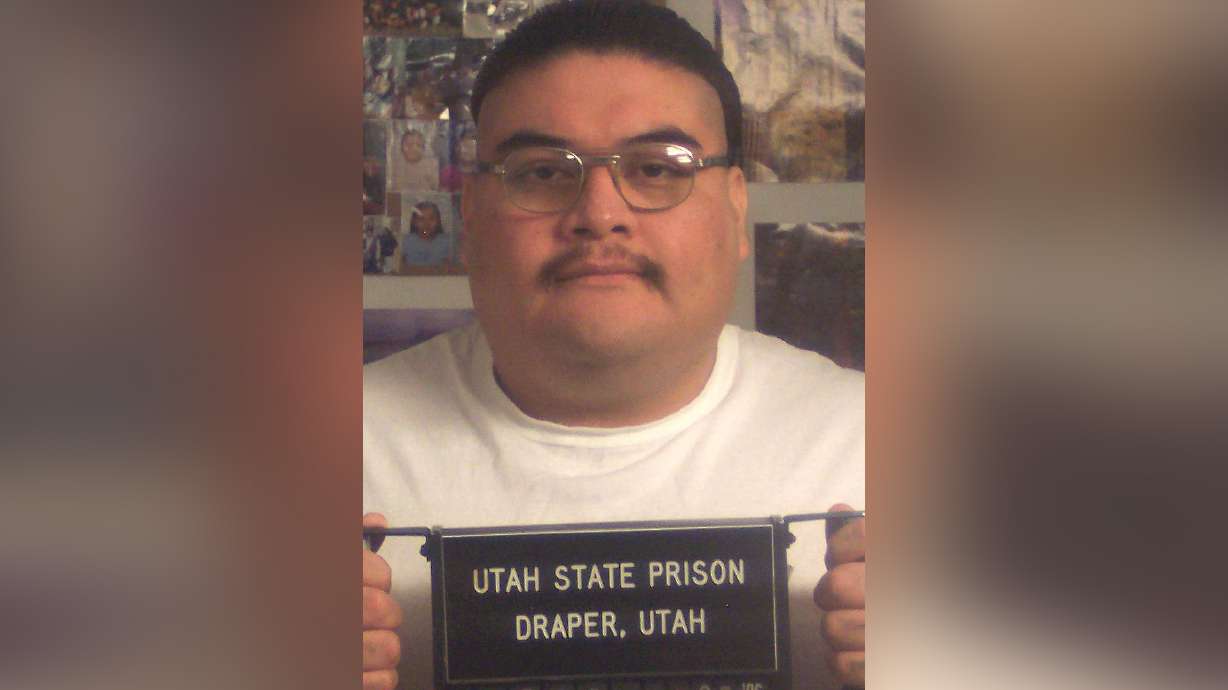Estimated read time: 2-3 minutes
This archived news story is available only for your personal, non-commercial use. Information in the story may be outdated or superseded by additional information. Reading or replaying the story in its archived form does not constitute a republication of the story.
SALT LAKE CITY — Taberon Honie, scheduled to executed by lethal injection in Utah in just under four weeks, is asking a judge to declare the state's lethal cocktail unconstitutional.
On Thursday, Honie, 48, and his attorneys filed a complaint for relief, asking the court to issue an injunction and command the state "not to carry out Honie's execution using the three-drug combination of ketamine, fentanyl and potassium chloride. Utah's lethal injection protocol and procedures pose a substantial risk of serious pain and unnecessary suffering in violation of Honie's right to be free from the infliction of unnecessary rigor and cruel and unusual punishment," according to court documents.
The complaint names the Utah Department of Corrections' top brass, including its director and warden, as defendants.
Honie is scheduled to be executed on Aug. 8. He was convicted of murdering his ex-girlfriend's mother, Claudia Benn, in front of Benn's three grandchildren in 1998. Honie has a commutation hearing scheduled before the Board of Pardons and Parole beginning July 22, during which he will ask the five-member board to commute his death sentence to life in prison without the possibility of parole.
In his complaint filed Thursday, Honie argues a barbiturate is typically the first drug used in a multi-drug lethal injection process to act as an anesthetic. But in Utah's planned three-drug injection for Honie's execution, "ketamine is not a barbiturate, but a dissociative anesthetic, and cannot render a prisoner unconscious and insensate to the painful effects of the subsequent drugs," the complaint states.
The second drug, fentanyl, has only been used in one other execution in the United States, the complaint argues, and has never been subject to a judicial review, therefore, "cannot reliably induce unconsciousness."
"This will cause Honie to feel as if his chest has turned to stone, rendering him unable to breathe," according to the complaint.
Because of the shortcomings of ketamine and fentanyl, by the time the third drug, potassium chloride, is administered, Honie may not be unconscious, the complaint states.
"It is well established that if a prisoner is not adequately unconscious and insensate to pain when potassium chloride is administered, the prisoner will experience excruciating suffering," according to the complaint. "As the drug is administered, Honie will feel as if his veins have been set on fire and he is being burned alive, followed by the agonizing pain of cardiac arrest."
Honie's attorneys also argue the way the execution protocol is written by the Department of Corrections is "a clear attempt to manipulate the legal system" and spread across many documents to make them "inherently contradictory and unintelligible."
"Allowing the state to proceed with Honie's execution under these conditions would subject him to cruel and unusual punishment," the complaint argues.
Attorneys for both sides will be in court on Wednesday for a scheduling conference regarding how to proceed with the complaint.









